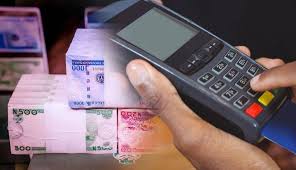By Milcah Tanimu
In 2024, Nigeria’s electronic transactions soared to an all-time high of N1.08 quadrillion, representing a remarkable 79% increase from the previous year. This surge reflects a deeper shift toward a cashless economy, fueled by the Central Bank of Nigeria’s (CBN) policies and an expansion of financial inclusion.
The data, provided by the Nigeria Inter-Bank Settlement System (NIBSS), revealed a steady growth in NIBSS Instant Payments (NIP) transactions. The volume increased from N72.11 trillion in January to N115.12 trillion in December, with October and November seeing peaks of N103.21 trillion and N109.53 trillion, respectively. Additionally, the number of electronic transactions rose by 13.69%, from 11.69 billion to 13.92 billion.
The Central Bank’s 2023 cash withdrawal policy aimed at reducing the cash circulation in the economy and promoting electronic payments. This push has contributed to more Nigerians adopting digital payment methods, with financial inclusion reaching 74% in 2023, up from 68% in 2020.
Experts such as Sarafadeen Fasasi, National President of the Association of Mobile Money and Bank Agents, attribute the rise in digital transactions to increased agent deployments, especially in rural areas. These agents enable even small traders to conduct digital payments, reducing reliance on cash.
Economists view this transition positively, but caution against the rise of cybercrime, urging more robust cybersecurity measures as digital transactions grow. As Nigeria’s e-payment system becomes increasingly effective, experts predict continued growth in digital finance.
With a rapidly evolving financial landscape, Nigeria is setting the stage for a more inclusive and cashless economy, positioning itself as a leader in electronic payments in Africa.





